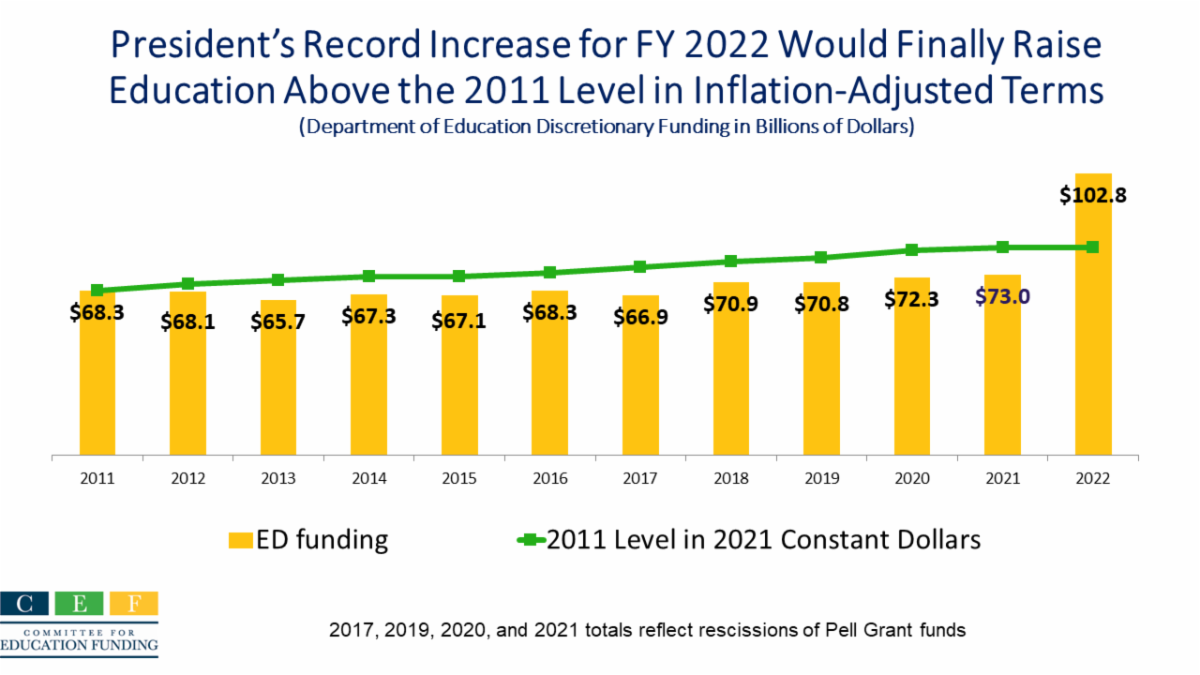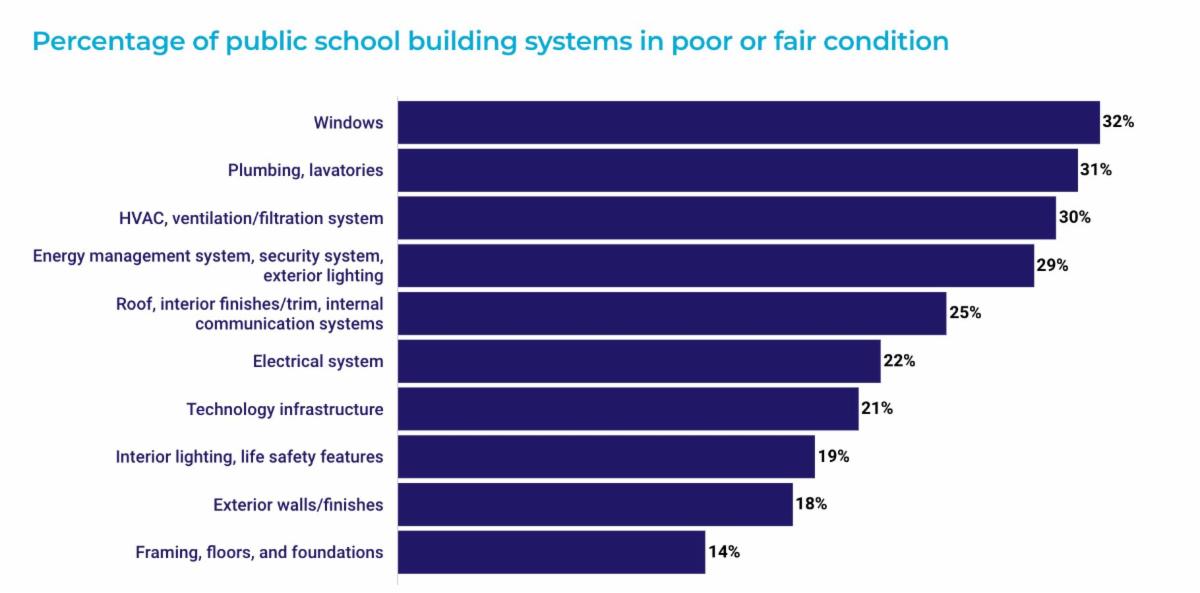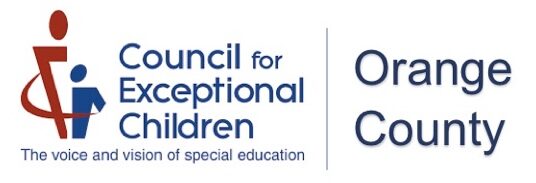From: Education Week’s EdWeek Update
June 1, 2021
Biden’s K-12 Budget Seeks $20 Billion for State Incentives to Address Funding Inequity
The “equity grants” are part of a huge spending plan that would also boost priorities like community schools, counselors, and school nurses.
June 2, 2021
Nation Earns a ‘C’ on School Finance, Reflecting Inconsistency in K-12 Funding and Equity
The Edweek Research Center’s latest analysis finds a gulf in many states between per-pupil spending and how that K-12 money goes out.
State Grades on School Finance: 2021 Map and Rankings
Examine the grades and scores that states and the nation earned on school finance, along with how they scored on a host of indicators.
Child Abuse Cases Got More Severe During COVID-19. Could Teachers Have Prevented It?
A study finds that the severity of identified child abuse cases grew during the pandemic, even as reports of abuse declined.
School District Leaders Are Still Worried About Home Internet Access for Students
Schools have scaled-up their efforts to help more kids get online, according to a new survey, but concerns remain about tech equity.
June 3, 2021
The Pandemic Brought Universal Free School Meals. Will They Stay?
Relaxed rules during the COVID-19 pandemic have allowed schools to serve universal free meals. Some in Congress want to make that permanent.
June 4, 2021
College Enrollment Dip Hits Students of Color the Hardest
The pandemic led to a precipitous decline in enrollment for two-year schools, while four-year colleges and universities held steady.
June 7, 2021
Biden Team to Revisit How Schools Should Ensure Racial Equity in Discipline
The Trump administration pulled a directive on fair discipline for students of color. Biden’s Education Department will review the issue.
What’s at Stake in a Review of Federal Sex Discrimination Protections for Students
The Biden administration’s review of Title IX may prompt new guidance on how schools deal with sexual harassment and protect LGBTQ students.
June 8, 2021
One Big Reason Schools Are Ditching Remote Learning: The Cost
Despite increasing demand from parents, states are giving districts little financial incentive to provide online learning this fall.
Pandemic Prompts Some States to Pass Struggling 3rd Graders
As families wrestle with online learning, a pandemic economy and mental health difficulties, some states are delaying 3rd grade retention.
June 9, 2021
Big Gaps Remain in Students’ Home Internet Access, Survey Reveals
Even as internet access for students away from school has increased, many lack the robust connectivity, a survey by the Consortium for School Networking finds.
June 10, 2021
There Are Big Funding Gaps Affecting High-Poverty Schools. Can Biden Close Them?
Hurdles lie ahead for a $20 billion bid to create “Title I equity grants” to address long-standing funding inequities.
From: The Alliance for Excellent Education’s Federal Flash
June 2, 2021
Biden’s Budget Invests Billions in Education Equity
President Biden released his full FY2022 budget request, which includes a 41% increase for the U.S. Department of Education. The $103 billion investment in education would expand public schooling by four years—through universal pre-K and free community college—and create a new $20 billion equity fund designed to address inequities in state and local school funding, teacher pay, advanced coursework, and preschool. Plus, Senators Maggie Hassan (D-NH) and Todd Young (R-IN) reintroduce the Fast Track to and Through College Act to provide high school seniors new pathways to college and reduce the cost burden of higher education, the U.S. Department issued new guidance on how federal COVID-19 relief funds may be used, and two more Obama administration alums, Catherine Lhamon and Lisa Brown, have been nominated for leadership roles at the Education Department.
From: ASCD’s Smartbrief
June 2, 2021
Bill would provide universal, free school meals
The School Nutrition Association has prioritized making permanent universal, free school meals that have been offered during the coronavirus pandemic. Citing the importance of free meals during the health crisis, some US lawmakers have introduced the Universal School Meals Program Act of 2021, which would make free meals available to all students.
Full Story: Education Week (6/1)
June 4, 2021
Questions surround Biden’s plan for Title I
President Joe Biden’s plan for Title I funding includes establishing a $20 billion program that focuses on equitable funding for schools. This article addresses many of the questions still surrounding the proposal, including whether the use of federal funds can spur state-level changes to education funding.
Full Story: Chalkbeat (6/3)
Fauci: Vaccine studies in works for children under 12
Children younger than age 12 will likely have to wear masks when schools reopen to in-person learning if some communities continue to report high coronavirus infection rates, said Dr. Anthony Fauci, director of the National Institute of Allergy and Infectious Diseases. Fauci said he is “cautiously optimistic” that vaccines could be approved for children under 12 by year’s end.
Full Story: CNN (6/4)
June 7, 2021
ADHD medications may curb child suicide risk
Researchers studied 11,878 children ages 9 and 10 and found that attention-deficit/hyperactivity disorder medication was linked to lower odds of suicidality among children with externalizing symptoms. The findings were published in JAMA Network Open.
Full Story: United Press International (6/4)
Learning patterns studied for students with disabilities
Summer learning loss in kindergarten through fourth grade is greatest for students who have received special-education services, according to a study by NWEA. NWEA and the National Center for Learning Disabilities suggest that additional support and summer learning opportunities would improve outcomes for these students.
Full Story: K-12 Dive (6/4)
June 8, 2021
Research unclear on effectiveness of small class sizes
Some school districts plan to use a portion of federal coronavirus relief funds to reduce class sizes, but a review of five decades of research finds there is little evidence about the effectiveness of smaller class sizes. It’s also unclear how small class sizes should be in order to see results.
Full Story: The Hechinger Report (6/7)
June 10, 2021
Budget plan seeks to close school funding inequity
President Joe Biden’s federal budget proposal includes $20 billion aimed at closing “longstanding funding disparities” between low-income and higher-income school districts. Analysis from the nonprofit found that predominantly white districts receive $23 billion more annually than districts that enroll predominantly non-white students.
Full Story: The New York Times (6/9)
June 11, 2021
Data: In-person learning reaches new highs
Nearly all K-8 schools in the US offered some level of in-person instruction in April, according to data collected by the Institute of Education Sciences. Data shows that at least half of fourth-grade students in April were enrolled in full-time, in-person instruction and that the number of students enrolled in online learning is dropping.
Full Story: U.S. News & World Report (6/10), Education Week (6/10)
Federal bill invests $460M to tackle childhood trauma
US Rep. Ayanna Pressley of Massachusetts introduced legislation Thursday aimed at addressing childhood trauma, which she said has been exacerbated by the coronavirus pandemic. Under the bill, $460 million would be invested in local programs that have been successful and provide supports, such as food, housing and mental health care.
Full Story: U.S. News & World Report (6/10)
Data shows decline in spring enrollment
Spring enrollment in colleges and universities dropped by more than 600,000 students, compared with spring 2020, the National Student Clearinghouse Research Center reports. The sharpest decline — 9.5% — occurred at community colleges, while total enrollment for colleges and universities dropped 3.5%.
Full Story: Inside Higher Ed (6/10)
From: Smartbrief on Special Education
June 2, 2021
IDEA funding boost included in budget proposal
President Joe Biden’s proposed spending plan would increase the Individuals with Disabilities Education Act budget by $2.7 billion, with an emphasis on early intervention. The budget proposal also expands funding for enhanced services — such as in-home and community assistance — for people with disabilities.
Full Story: Disability Scoop (6/2)
Routine vaccines safe for children, pregnant women
A study in Vaccine found strong evidence that the measles, mumps and rubella vaccine does not increase the risk of autism spectrum disorder among children and that the vaccine was linked to increased, but low, risk for febrile seizures. The findings, based on data from 338 studies, also showed no increased risk for serious side effects, including stillbirth, after tetanus, diphtheria and acellular pertussis vaccination among pregnant women.
Full Story: HealthDay News (5/28)
June 7, 2021
Federal investment seeks to curb teacher shortage
The coronavirus pandemic has worsened the nation’s teacher shortage, and President Joe Biden’s American Families Plan includes investments to help strengthen the pipeline of classroom teachers and bolster retention efforts. This includes a focus on “grow your own” programs that help school districts recruit teachers.
Full Story: NBC News (6/6)
June 9, 2021
CDC: Fully vaccinated schools can reopen at full capacity
New CDC guidance states that colleges and universities with fully vaccinated populations may reopen at full capacity. Coronavirus prevention measures such as masks and social distancing are still required for schools where all staff and students are not fully vaccinated.
Full Story: Higher Ed Dive (6/7)
Pfizer testing COVID-19 vaccine in young children
Pfizer has announced it will initiate testing to assess the Pfizer/BioNTech COVID-19 vaccine in a larger group of children younger than 12 after choosing a lower vaccine dose that was validated in a Phase 1 study. The drugmaker will enroll as many as 4,500 children at over 90 clinical sites in Finland, Poland, Spain and the US.
Full Story: Reuters (6/8)
From: The National Superintendents’ Roundtable’s Roundtable News
June 4, 2021
President Biden’s Fiscal 2022 budget proposals promise to get funding back on track
Last Friday the President laid out details of his budget that included a 41% increase in funding for education, plus more for education-related programs such as Head Start, child care, and workforce development.
Significant in its own terms, the president’s proposal would finally raise federal education funding above the 2011 level in inflation-adjusted terms.

Americans school buildings need fixing
While Congress debates infrastructure spending, it is clear that school infrastructure needs a lot of attention. The president has proposed $100 billion for school construction, pointing to the need to upgrade drinking water, eliminate asbestos, and improve ventilation. The American Society of Civil Engineers has given the nation’s school infrastructure a grade of D+. Education Week’s Mark Lieberman recently reported on the percentage of school building systems that are only in fair or poor condition.
June 11, 2021
Biden wants to fix nation’s teacher shortage but it’s getting worse
The $9 billion dollars set aside in the Biden Administration’s American Families Plan to increase teacher recruitment and retention “represents a critical investment for the White House to make good on many other parts of his domestic agenda,” according to experts, writes Adam Edelman for NBC News.
The high cost of student debt has kept many would-be educators out of the profession. And that, along with retirements hastened by the pandemic, is causing an increasingly acute teacher shortage, particularly among teachers of color. In an effort to reverse that trend, a chunk of the incoming money will go to scholarships and recruitment.
From: The Council for Exceptional Children’s Special Education Today
June 4, 2021
Ed Department sets expectations for special education as schools reopen
Disability Scoop
With schools across the nation increasingly eyeing a return to normalcy, federal education officials are further clarifying what that should mean for students with disabilities. In a 23-page question-and-answer document, the U.S. Department of Education is laying out how the Individuals with Disabilities Education Act, Section 504 of the Rehabilitation Act and other civil rights laws apply as schools return to in-person learning.
As US schools resume testing, large numbers are opting out
The Associated Press
Standardized tests are returning to the nation’s schools this spring, but millions of students will face shorter exams that carry lower stakes, and most families are being given the option to forgo testing entirely. With new flexibility from the Biden administration, states are adopting a patchwork of testing plans that aim to curb the stress of exams while still capturing some data on student learning. The lenient approach means large swaths of students will go untested, shattering hopes for a full picture of how much learning has been set back by the pandemic.
June 11, 2021
Biden’s budget includes boost to special ed, disability services
Disability Scoop
With his $6 trillion budget, President Joe Biden is cementing his resolve to significantly expand the nation’s investment in home and community-based services for people with disabilities. Biden’s request to Congress, which was released late last week, includes $400 billion in extra funding for services allowing people with disabilities and older adults to live in the community as opposed to nursing homes and other institutional settings.
Biden details spending in $103B education budget plan
District Administration Magazine
The Biden administration released details of its nearly $6 trillion FY 2022 budget request, including more specifics of the proposal to spend nearly $103 billion in education-related programs in the next fiscal year. While presidential budget requests do not generally become law, they provide a sense of the spending priorities for the administration and lay down a marker for negotiations with Congress on final annual appropriations figures.
From: Whiteboard Advisors’ WHITEBOARDNOTES
June 4, 2021
Education Department Rescinds Trump-Era Policy Restricting State Oversight of Student Loan Servicing Companies and Debt Collectors: Richard Cordray, the head of the Federal Student Aid office, announced new guidance Friday that would reverse a Trump-era policy that restricted states’ access to records and information in policing student loan servicing companies. In 2017, FSA published a memo that told loan servicing companies they must send requests to FSA before releasing information to a state attorney general. Then-Secretary Betsy DeVos fought to curtail states’ involvement in oversight by arguing that the federal government should be monitoring the system since the loans are federal assets – an approach that forced states to file lawsuits against the FSA and its loan companies as a way to obtain information. “States and regulators need information when they think a loan servicing company might be violating a law or regulation,” Cordray wrote in a blog post. “It’s time for us to be a partner, not a roadblock.” The FSA’s new approach will be to review data requests from state and local agencies and financial regulators “quickly and approve them whenever it is possible to do so.” [U.S. Department of Education; Politico]
Biden’s Fiscal Year 2022 Budget: The Biden Administration submitted to Congress the President’s budget for fiscal year 2022 Friday. “We need to focus on not only recovering from the pandemic but also look towards our students’ education after the pandemic to ensure there are improved resources to build our education system back better than before,” said U.S. Secretary of Education Miguel Cardona. The budget request totals $102.8 billion for early childhood, K-12 and higher education programs and is 41 percent more than the current fiscal year. The budget includes universal preschool to all three- and four-year-olds, increasing the number of counselors and social workers in schools, two years of free community college, various investments in making college more affordable for low- and middle-income students, and a historic $36.5 billion proposed investment in grants for Title I schools. The Biden-Harris budget also boosts support for children with disabilities by proposing $16 billion for the Individuals with Disabilities Education Act. [U.S. Department of Education; K-12 Dive]
MIT Report: School Shootings Cause Affluent Families to Leave, Per-Pupil Funding to Rise: A recent report analyzed school enrollment and finance data from 210 school districts that experienced a school shooting between 1999 and 2018. The authors found that in districts that experienced school shootings, enrollment dropped on average 5 percent, both at public and private schools, indicating that families chose to leave the district entirely. These enrollment changes were driven almost entirely by families of students who did not qualify for free or reduced price lunch, indicating that the departing families were nearly all well-off. After school shootings, per-pupil spending increased on average $248, most of which came from federal money. The research shows that this increased per-pupil spending was largely directed at non-instructional programs such as student support services and capital projects. [The 74 Million; MIT Press Direct]
June 10, 2021
Cardona Backs Transgender Athletes’ Rights: Cardona told ESPN that transgender girls have a “right to compete” and suggested that the Biden administration will step in, stating it is “nonnegotiable that we’re going to protect the civil rights of all students.” [ESPN]
Department of Education Begins Title IX Public Hearings: Following a directive from President Biden to review Title IX regulations released last May under former secretary Betsy DeVos, the Department of Education began five days of public hearings Monday regarding how it can improve Title IX enforcement. The department expects to virtually hear from 600 individuals and has also received 15,000 written comments, covering topics from the need for Title IX to address sexual violence prevention to the debate over transgender athletes competing on teams. [The White House; Inside Higher Ed; U.S. Department of Education]
From: The National Association of Federal Education Program Administrators, NAFEPA, The Connection
June 10, 2021
More Details on Biden’s FY22 Budget
On the Friday before Memorial Day, the Biden Administration unveiled a detailed FY22 budget. About a month ago, the Biden team provided a high-level summary of their budget, which calls for impressive increases in annual programmatic funding levels. The overall price tag is $6 trillion, including a 41% (!) increase for ED which would take annual funding for the department north of $100 billion. The president is certainly trying to keep his campaign promise to dramatically increase federal education funding…………
Overall, the budget proposal builds on the priorities in Biden’s American Infrastructure Plan and its American Families Plan by requesting:
-
-
-
-
- $100 billion over 10 years for school infrastructure ($50 billion in competitive grants and $50 billion through bonds);
- $3.5 billion for new universal preschool programs through the HHS;
- $2.7 billion for the IDEA, taking the funding level to $16 billion (remember that the IDEA funding in the American Rescue Plan was one-time funding, not a new baseline for future appropriations);
- $413 million for full-service community schools, which help coordinate services like health care and counseling to meet students’ non-academic needs;
- $1 billion for a new program to double the number of counselors, school psychologists, nurses, and social workers in schools.
-
-
-
From: ASCD’s Educator Advocates Capitol Connections
June 7, 2021
Biden Proposes 41% Increase for Education Department
The Biden administration is proposing a 41% increase for the US Department of Education in his FY22 budget.
-
-
- The centerpiece of his K-12 education budget is a new $20 billion Title I equity grant program.
- IDEA state grants would get a $2.6 billion increase to $17.5 billion total.
- Also new would be an annual $1 billion for school-based health professionals to increase the number of counselors and nurses in schools.
- The administration is also seeking an $85 billion increase for Pell Grants to increase the maximum award from $6,495 to $8,370.
- Title II (professional development) and Title IV (well-rounded) grant programs would remain at FY21 levels.
- Read the press release, the budget highlights, and the Department of Education FY22 summary.
-
Covid School Funding Questions Answered
The Department of Education released FAQs for the education funding in the American Rescue Plan. The resource provides guidance on the use of the funds at the state and local level.
-
-
-
- It helps answer a wide range of questions and situations facing school leaders, like:
- May funds be used for career and technical education? (Yes)
- May funds be used in combination with other funding (i.e., “braided”)? (Yes)
- May an LEA use funds to provide “premium pay” or other additional compensation for teachers, principals, and other school personnel, including school nutrition staff and custodians? (Yes)
- Access the full FAQ here.
- It helps answer a wide range of questions and situations facing school leaders, like:
-
-
Did You Know
The Biden administration’s proposed $2.6 billion increase to IDEA state grants is the largest increase for special education and would bring the federal contribution up to 15% of the national average per-pupil expenditure.






